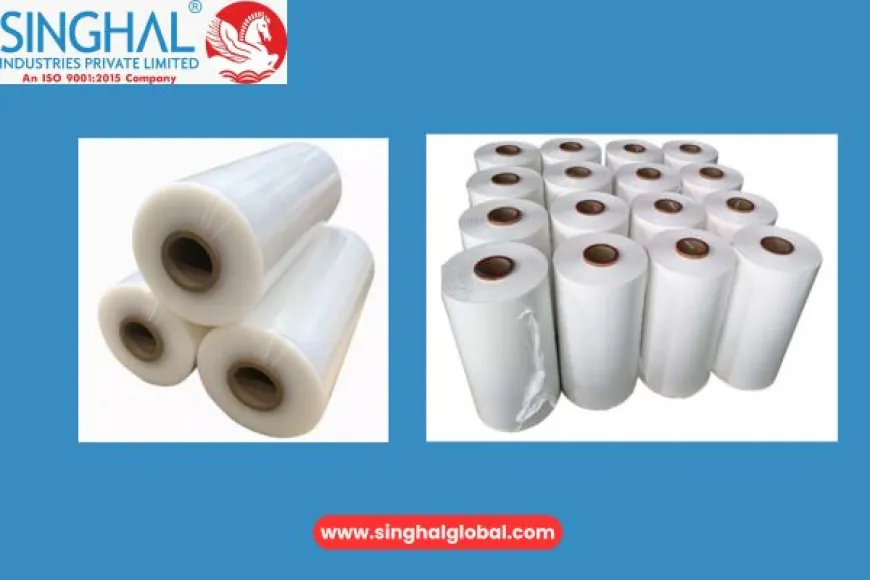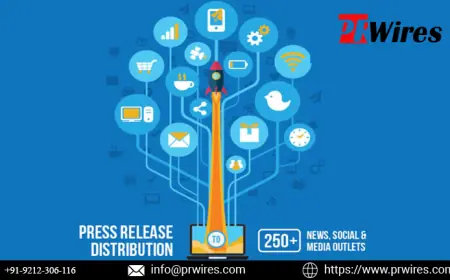PE Film Material: Versatility in Industrial Applications

PE Film Material has become an essential component in a wide range of industrial sectors due to its durability, flexibility, and adaptability. Polyethylene (PE) films are made from one of the most widely used plastics globally and are highly valued for their unique properties that cater to a broad spectrum of applications. Whether used in packaging, agriculture, or construction, PE Film for Industrial Use has proven to be a go-to material for manufacturers and industries that require reliable and cost-effective solutions.
In this article, we will delve into the advantages of PE Film Material, explore its industrial applications, and highlight the role of a reliable PE Film Supplier in ensuring high-quality products.
What Is PE Film Material?
PE Film Material is primarily composed of polyethylene, a polymer derived from ethylene gas. Polyethylene comes in two primary forms: Low-Density Polyethylene (LDPE) and High-Density Polyethylene (HDPE), each offering specific advantages. LDPE films are known for their flexibility and ability to stretch, making them ideal for packaging applications. HDPE films, on the other hand, are stronger, more rigid, and resistant to environmental stress, making them suitable for tougher industrial applications.
The versatility of PE Film Material allows it to be customized for different industries and purposes, from thin, transparent sheets used in food packaging to thick, durable films used in construction and agriculture.
PE Film for Industrial Use
PE Film for Industrial Use plays a crucial role across multiple sectors due to its wide range of beneficial properties. Some of the key industries that rely on PE films include:
-
Packaging Industry
One of the most significant applications of PE Film Material is in packaging. From shrink wrap to stretch films, PE films provide an ideal solution for protecting goods during transportation and storage. The durability and moisture resistance of PE films help safeguard products from damage, ensuring that they arrive in perfect condition. The flexibility of PE film makes it suitable for both automated and manual wrapping, making it an invaluable resource for businesses in logistics, retail, and manufacturing. -
Agriculture Industry
In agriculture, PE films are extensively used for greenhouse covers, silage wraps, and mulch films. The UV resistance and durability of PE Film Material make it an excellent choice for protecting crops from harsh weather conditions, maintaining soil moisture, and improving crop yield. As an affordable and practical material, PE film ensures that farmers can maintain healthy crops with lower costs. -
Construction Industry
In the construction sector, PE Film for Industrial Use is utilized as vapor barriers, protective sheeting, and insulation layers. Its water-resistant properties make it ideal for creating barriers against moisture in buildings. Additionally, it can be used to cover building materials or equipment, protecting them from dust, dirt, and other contaminants. -
Automotive Industry
PE films also find their place in the automotive industry, where they are used to cover and protect vehicle components during manufacturing and shipping. The flexibility and strength of PE Film Material ensure that sensitive automotive parts remain intact and free from damage.
The Role of a Reliable PE Film Supplier
The quality of PE Film Material depends greatly on the expertise and capabilities of the PE Film Supplier. Working with a reputable supplier ensures that industries receive films that meet specific requirements in terms of thickness, durability, flexibility, and chemical resistance. When choosing a PE Film Supplier it’s essential to consider factors such as product range, production capacity, and the supplier’s ability to provide customized solutions for unique industrial needs.

A reliable PE Film Supplier will also prioritize sustainability, ensuring that the manufacturing processes minimize environmental impact. Many suppliers are now offering recyclable PE films, aligning with the growing demand for eco-friendly industrial materials. By sourcing from such suppliers, industries not only benefit from high-performance PE films but also contribute to a greener planet.
Advantages of PE Film Material
PE Film Material offers several advantages that make it a preferred choice for industrial applications:
- Cost-Effective: PE films are generally more affordable than other plastic materials, offering a cost-effective solution for large-scale use.
- Versatile: From flexible to rigid, thin to thick, PE films can be tailored to meet specific needs across various industries.
- Durable: PE films are highly resistant to tearing, punctures, and environmental stress, ensuring long-lasting performance.
- Moisture-Resistant: Their ability to block moisture makes PE films ideal for protecting products, crops, and building materials.
- Chemical-Resistant: PE films are resistant to chemicals, oils, and solvents, making them suitable for demanding industrial environments.
Conclusion
PE Film Material is a versatile and indispensable material for industrial use. Its adaptability and range of applications—from packaging to agriculture and construction—underscore its importance in today’s industries. By partnering with a reliable PE Film Supplier, businesses can ensure they receive high-quality products that meet their specific needs. Whether used to protect goods, crops, or infrastructure, PE films continue to be a trusted and effective solution for industries worldwide.
Short FAQs on PE Film Material
What's Your Reaction?
 Like
0
Like
0
 Dislike
0
Dislike
0
 Love
0
Love
0
 Funny
0
Funny
0
 Angry
0
Angry
0
 Sad
0
Sad
0
 Wow
0
Wow
0

















































